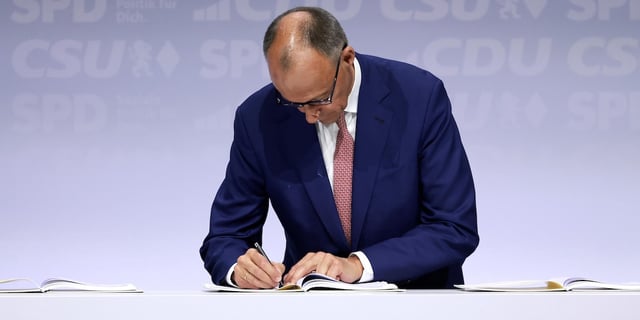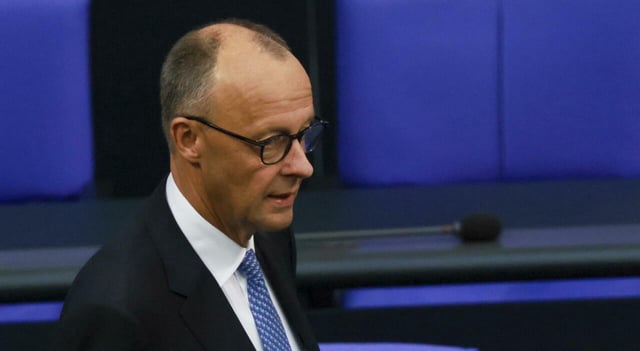Overview
- Friedrich Merz received 310 votes in favor, missing the required 316 for an absolute majority in the Bundestag's first chancellor vote.
- Eighteen coalition members from the CDU/CSU and SPD failed to support Merz, highlighting internal divisions within the narrow coalition majority of 328 seats.
- This marks the first time since 1949 that a German chancellor candidate has not been elected on the first ballot, underscoring the precariousness of the current political landscape.
- Under German constitutional law, the Bundestag has 14 days to elect a chancellor by absolute majority; failure could lead to a presidential appointment or new elections.
- The coalition agreement includes significant policy reforms, such as a €500 billion infrastructure fund and a constitutional exemption allowing increased military spending beyond 1% of GDP.



